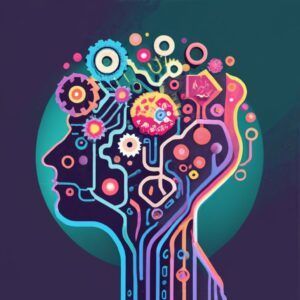AI Found To Detect Parkinson’s Up To Seven Years Before Symptoms
Tool TrendAI • October 17, 2023
The post AI Found To Detect Parkinson’s Up To Seven Years Before Symptoms first appeared on Tool Trend AI.

ToolTrendAI

In a groundbreaking development, researchers have harnessed the power of artificial intelligence (AI) to detect Parkinson’s disease up to seven years before the onset of noticeable symptoms. This breakthrough holds immense promise for early diagnosis and intervention, potentially altering the course of the disease and improving patient outcomes.
Parkinson’s disease is a neurodegenerative disorder characterized by tremors, stiffness, and difficulty with balance and coordination. Early diagnosis is crucial for effective treatment, as it allows for timely interventions that can slow the progression of the disease and improve quality of life. However, diagnosing Parkinson’s in its early stages has been a challenge due to the subtle nature of early symptoms.
AI has emerged as a powerful tool in medical diagnostics, with its ability to analyze vast amounts of data and identify patterns that may be imperceptible to human observation. In the case of Parkinson’s, researchers have trained AI algorithms to detect subtle changes in eye scans and subtle variations in movement patterns that can signal the onset of the disease years before overt symptoms appear.

Studies have demonstrated the remarkable accuracy of AI in identifying individuals at risk of developing Parkinson’s. In one study, AI analysis of eye scans accurately predicted Parkinson’s diagnosis up to seven years before the appearance of motor symptoms. Another study using AI to analyze movement patterns showed the ability to detect Parkinson’s up to five years before diagnosis.
The implications of these findings are profound. Early detection of Parkinson’s can empower individuals to make lifestyle changes, seek early treatment, and participate in clinical trials, potentially delaying the progression of the disease and preserving quality of life for longer periods.
Moreover, early detection can facilitate research into the underlying causes of Parkinson’s and the development of new therapies. By identifying individuals at risk, researchers can better understand the disease’s progression and test potential treatments before significant neurological damage occurs.
While AI-based detection methods are still under development, they hold immense promise for revolutionizing Parkinson’s diagnosis and management. The ability to detect the disease years before symptoms emerge offers a window of opportunity for early intervention and improved patient outcomes, potentially transforming the lives of millions affected by this debilitating condition.
What ethical considerations arise from AI-based disease prediction? How can we ensure equitable access to AI-powered diagnostics?
The post AI Found To Detect Parkinson’s Up To Seven Years Before Symptoms first appeared on Tool Trend AI.
Have a question or comment?
Let us know.